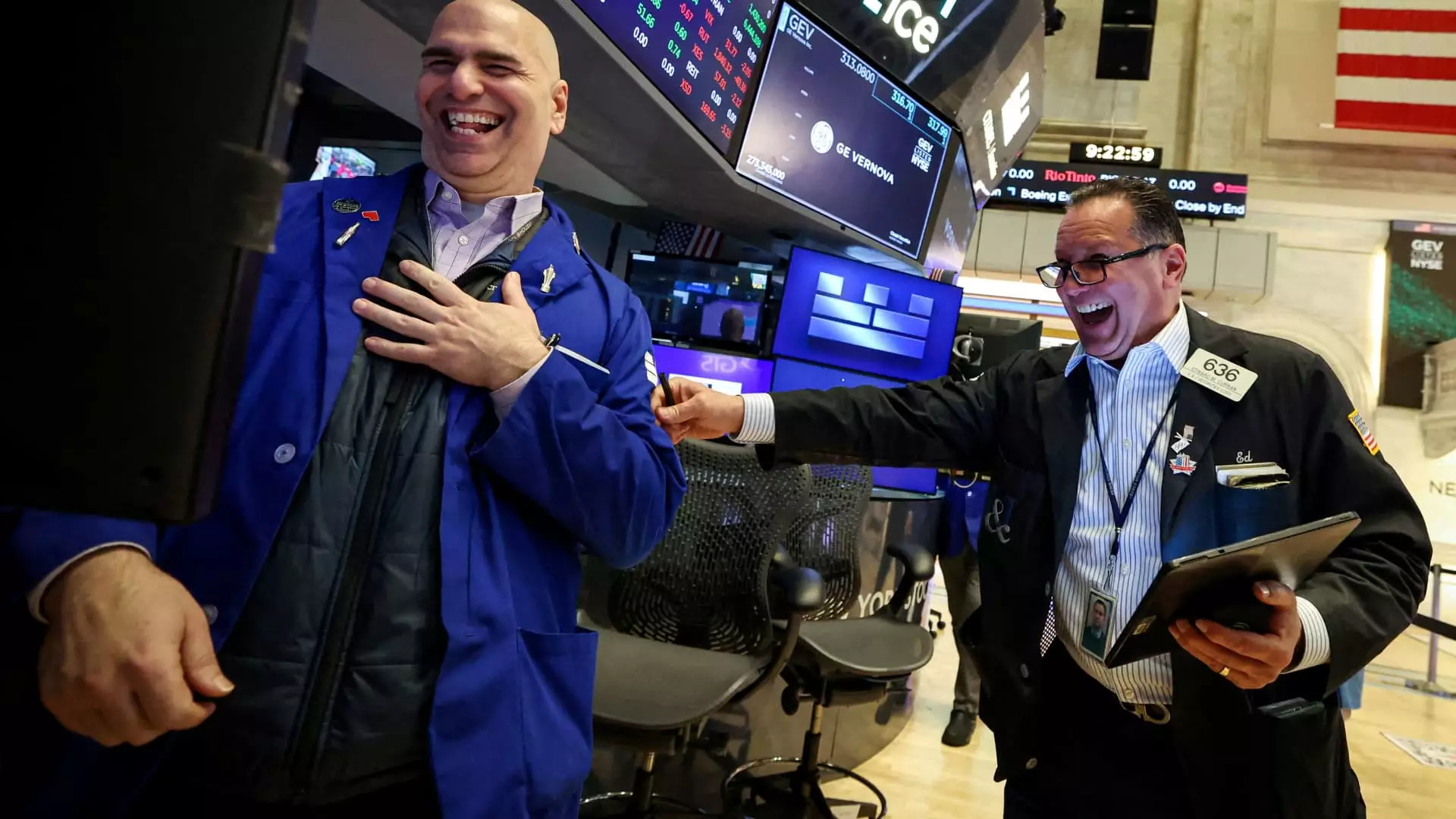In a shocking two-day spectacle, the stock market shot up a staggering 1,500 points, illustrating the sheer volatility that arises when short sellers scramble to cover their positions. This frantic surge is a stark reminder of how market dynamics are not always based on solid fundamentals but can be heavily influenced by the behavioral quirks of traders. Short selling involves betting against stocks—borrowing shares to sell, hoping to repurchase them at a lower price. It’s a risky game, susceptible to fierce counter-moves; when prices unexpectedly rise, these short sellers must buy back shares quickly to mitigate their losses, igniting a phenomenon known as a short squeeze.
In an environment where overzealous bearish sentiment can amplify such swings, this recent incident serves as a cautionary tale. When the market begun to rally, it wasn’t driven by groundbreaking news or robust economic indicators, but by the urgent need of hedge funds to tame their bleeding portfolios. It is worrying to think that the stock market can sometimes prioritize sensational trading over substantive economic progress.
The Role of External Factors and Macroeconomic Sentiment
Amid this chaotic volatility, comments from influential figures like President Trump can lead to significant fluctuations. Trump’s recent remarks about potential progress in trade discussions, despite no concrete agreements, partially fueled the market’s excitement. The juxtaposition of his previous declarations against the Federal Reserve with his newfound support for Jerome Powell shows the unpredictable nature of political discourse and its ability to swing market sentiment. Our financial system should not be this susceptible to the whims of a single figure, however powerful.
Treasury Secretary Scott Bessent’s assertion that a “big deal” on trade is still on the table adds another layer to this intricate tapestry. Yet, as we’ve seen too often, markets can become deluded by prospects that often fail to materialize. It’s alarming that thousands of investment decisions hinge on what may simply be wishful thinking rather than rigorous economic evaluation.
The Risks of Tumultuous Volatility and Lack of Conviction
Despite the impressive rebound in stock indices, investment professionals are cautious. Statements from Goldman Sachs indicate a lack of confidence among hedge funds, whose short-covering strategies do not seem to transition into substantive long-term holdings. This spells trouble; it raises the question of how sustainable these gains are. Are we witnessing a fleeting moment of euphoria driven by fear rather than strategic foresight?
For traders, relying solely on short squeezes to prop up the market can mask underlying weaknesses in economic health. If hedge funds have not shifted into taking long positions, this raises profound questions about the resilience of the current rally. A market that thrives on short-covering is a fragile one, gesturing towards the volatility that can unravel in the face of adverse economic news or a political misstep.
Furthermore, the discontinued adherence to fundamental analysis when encountering short squeezes poses systemic risks. One has to wonder whether common sense and diligent research have been overshadowed by reflexive trading behaviors in today’s data-heavy and emotionally charged markets.
While the market’s two-day rally showcases a momentous spike in volatility, it poses critical questions about the health of our financial ecosystem. We cannot shy away from recognizing that these surges, driven by short sellers covering their losses, reveal a deeper fragility woven into the fabric of our investment practices. The stock market must evolve beyond these perilous theatrics to promote a more stable, fundamentally sound investment ethos. Understanding the psychological forces at play is essential, as it could influence investment strategies and economic policies moving forward, particularly for those of us leaning towards a more progressive economic outlook.

